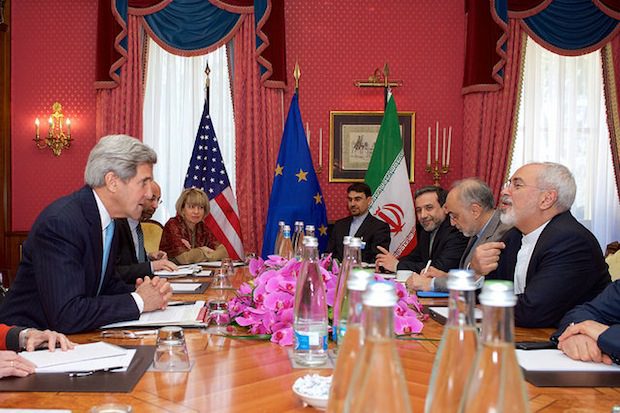The Case for Normalizing Relations with Iran

Barbara Slavin explains why Iran and the USSR are very different and why the hard-liners seeking to collapse the regime are nothing like Reagan. Here she makes a very important observation that often gets overlooked in discussions of U.S.-Iranian relations:
Iran and the United States, of course, lack diplomatic ties, which were so instrumental in promoting people-to-people contact with the Soviet Union. This author was an exchange student in what was then called Leningrad in the 1970s, an experience that humanized the Soviet Union in the eyes of the visiting Americans and performed a similar function for our Soviet counterparts.
Unfortunately, few Americans know the reality of today’s Iran and are thus easily manipulated by propagandists who cast the country in relentlessly negative terms.
The U.S. has normal diplomatic relations with almost every other country on the planet, but Iran is one of a handful that Washington has chosen to shun. We have not had normal relations with Iran for close to forty years, and it shows in our government’s lack of understanding of Iran’s politics and policies. Considering that the U.S. and Iran have never formally been at war with one another, it is extremely strange that our governments do not have normal relations after all this time. The U.S. recognized the USSR and established normal relations with a Soviet government under Stalin less than twenty years after the October Revolution, it recognized the PRC less than thirty years after the armistice in Korea, and it normalized ties with Vietnam twenty years after the fall of Saigon. If the U.S. was able to have normal relations with these governments, normalization with Iran is long overdue. Thanks to the unremitting hostility from the current administration, it is unfortunately as far away as ever.
In all of those other cases, the U.S. established normal relations in recognition of the reality that their governments were in power and weren’t going to disappear anytime soon. The current regime in Iran is roughly as old as I am, and despite strains and serious problems it is likely going to stay in power for the foreseeable future. Refusing to deal equitably and honestly with Tehran gets the U.S. nothing, and pretending that the regime is about to collapse is just putting the U.S. on a collision course that will be a disaster for both nations.
There is common hawkish complaint that normalization “rewards” the other government, but the truth is that it would provide the U.S. with many benefits. Normal relations give the U.S. information about, understanding of, and contact with the people of the country in question that we otherwise aren’t going to get. Normal relations create a mechanism for handling incidents and misunderstandings between our governments, and they allow Americans to learn about the country firsthand on a regular basis. Diplomatic ties can help to defuse tensions between our governments, and better yet they can prevent those tensions from increasing in the first place. If Americans or nationals from allied countries are wrongfully detained, having a diplomatic presence in the other country’s capital can make a huge difference in obtaining their release. Refusing to have normal relations with another state is a huge disadvantage for the U.S., especially when virtually every other government in the world already has normal ties. It makes absolutely no sense that we still haven’t established diplomatic ties with Tehran for nearly forty years. In the interests of both the U.S. and Iran, restoring normal relations should be a priority for the next administration.
Comments